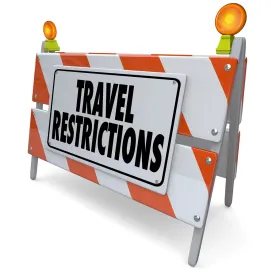While the Travel Ban continues to move up and down the federal court system, here are the latest rules governing travel for citizens of the affected countries as a result of the U.S. Supreme Court’s lifting of the lower courts’ injunctions on December 4, 2017, a December 22 ruling by the Ninth Circuit invalidating the latest travel ban but not enjoining it, and recent action by a Federal District Court in Seattle partially lifting the refugee ban on December 23, 2017 :
-
Countries affected: Iran, Chad, Libya, Somalia, Syria, Yemen, North Korea, and Venezuela.
-
Existing visa holders: May continue to use their visas, but may be subject to enhanced vetting at the port of entry by U.S. Customs & Border Protection.
-
Waiver: One may apply for a waiver of the travel ban but the presumption is that they will be rarely issued.
-
Close Family and Business (“Bona Fide”) Ties to the U.S.: No longer a basis to seek a waiver of the travel ban, but does apply to refugees (see below).
-
Dual Nationals: Dual nationals holding a second passport from a non-travel ban country are not subject to these restrictions; however, they may encounter enhanced screening at the port of entry.
-
U.S. Permanent Residents: Permanent residents of the United States (green card holders) who have a passport from one of the enumerated countries are not subject to the travel ban.
-
Diplomats: May enter the U.S. on a diplomatic visa.
-
Confusing Language: While the travel ban proclamation speaks in terms of “denial of entry” for nationals of certain countries, the practical effect will be that these individuals will be denied visas even before they attempt to enter the U.S. Either way, people covered by the ban (as described below) will not be able to come to the U.S., unless they meet one of the exceptions (discussed above).
-
Iran: Has the most travelers to the U.S. from the 8 affected countries. Iranians with existing visas may travel to the U.S. New visas will only be granted to F-1 students, M-1 students, and J-1 scholars and other exchange visitors. All other non-immigrant visa applications and immigrant visa applications are suspended
-
Chad: B-1/B-2 visitor visa application processing is suspended, as are immigrant visa applications.
-
Libya: B-1/B-2 visitor visa application processing is suspended, as are immigrant visa applications.
-
Somalia: Immigrant visa processing is suspended. All non-immigrant visa applications will be subject to enhanced vetting.
-
Syria: All non-immigrant and immigrant visa processing is suspended.
-
Yemen: B-1/B-2 visitor visa application processing is suspended, as are immigrant visa applications
-
North Korea: B-1/B-2 visitor visa application processing is suspended, as are immigrant visa applications.
-
Venezuela: Certain government officials will no longer be able to enter the U.S. as B-1/B-2 visitors. Other visa applicants will be subject to enhanced vetting.
-
Refugees: As a result of an order issued by the government in October, and the District Court ruling on December 23, all overseas refugee applications for citizens of 11 countries are suspended unless the applicant can show a bona fide relationship (such as a close family member or working relationship) to a person or entity in the U.S. The 11 countries are: Egypt, Iran, Iraq, Libya, Mali, North Korea, Somalia, South Sudan, Sudan, Syria and Yemen.
Next up for the travel ban will be a ruling from the Fourth Circuit, expected any day, which will likely not change any practical effects but simply provide that court’s view of the ban. Similarly, the Ninth Circuit will likely be called on to review the Seattle court’s order regarding refugees. Both matters seem certain to end up back in the Supreme Court before long.
For a full copy of the latest Travel Ban, see https://www.whitehouse.gov/presidential-actions/presidential-proclamation-enhancing-vetting-capabilities-processes-detecting-attempted-entry-united-states-terrorists-public-safety-threats/.




 />i
/>i

